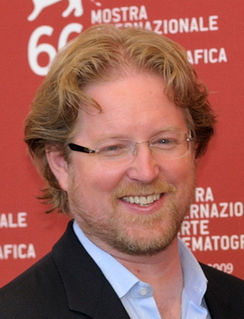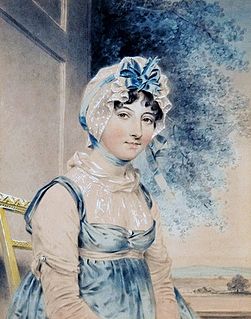A Quote by David Hume
The end of all moral speculations is to teach us our duty; and, by proper representations of the deformity of vice and beauty of virtue, beget correspondent habits, and engage us to avoid the one, and embrace the other.
Related Quotes
[Prudence] is the virtue of that part of the intellect [the calculative] to which it belongs; and . . . our choice of actions will not be right without Prudence any more than without Moral Virtue, since, while Moral Virtue enables us to achieve the end, Prudence makes us adopt the right means to the end.
We all fall into our habits, our routines, our ruts. They're used quite often, consciously or unconsciously, to avoid living, to avoid doing the messy part of having relationships with other people, of dealing with a person next to us. That's why we can all be in a room on our cell phones and not have to deal with one another.
After each failure, ask forgiveness, pick yourself up, and try again. Very often what God first helps us toward is not the virtue itself but just this power of always trying again. For however important chastity (or courage, or truthfulness, or any other virtue) may be, this process trains us in habits of the soul which are more important still. It cures our illusions about ourselves and teaches us to depend on God. We learn, on the one hand, that we cannot trust ourselves even in our best moments, and, on the other, that we need not despair even in our worst, for our failures are forgiven.
A sense of duty pursues us ever. It is omnipresent, like the Deity. If we take to ourselves the wings of the morning, and dwell in the uttermost parts of the sea, duty performed or duty violated is still with us, for our happiness or our misery. If we say the darkness shall cover us, in the darkness as in the light our obligations are yet with us.
My views on charity are very simple. I do not consider it a major virtue and, above all, I do not consider it a moral duty. There is nothing wrong in helping other people, if and when they are worthy of the help and you can afford to help them. I regard charity as a marginal issue. What I am fighting is the idea that charity is a moral duty and a primary virtue.
Jesus Christ does not teach us a spirituality “of closed eyes”, but one of “alertness”, one which entails an absolute duty to take notice of the needs of others and of situations involving those whom the Gospel tells us are our neighbours. The gaze of Jesus, what “his eyes” teach us, leads to human closeness, solidarity, giving time, sharing our gifts and even our material goods.
The neccessity for making a living keeps our minds so bound down to the details of professional success that we sometimes forget there is anything except professional success to live for. The necessity of conforming our habits and standards to the habits and standards of those about us, in order that we may do efficient work, makes us forget that there is a point where conformity ceases to be a virtue.
I know that God loves us. He allows us to exercise our moral agency even when we misuse it. He permits us to make our own decisions. Christ cannot help us if we do not trust Him; He cannot teach us if we do not serve Him. He will not force us to do what's right, but He will show us the way only when we decide to serve Him. Certainly, for us to serve in His kingdom, Christ requires that we experience a change of thought and attitude.
An entertainment is something which distracts us or diverts us from the routine of daily life. It makes us for the time being forget our cares and worries; it interrupts our conscious thoughts and habits, rests our nerves and minds, though it may incidentally exhaust our bodies. Art, on the other hand, though it may divert us from the normal routine of our existence, causes us in some way or other to become conscious of that existence.








































